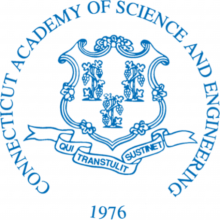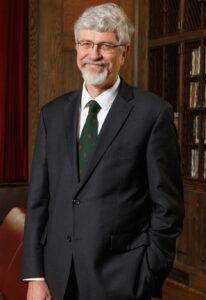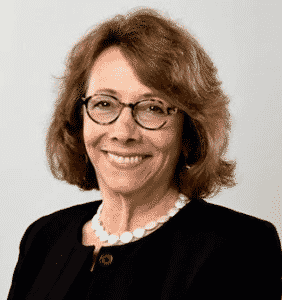East Hartford, CT – Connecticut’s most talented young scientists and engineers will be honored by the Connecticut Academy of Science and Engineering (CASE) at its 46th Annual Meeting, to be held virtually on Thursday, May 27, 2021, 6:30 pm – 8:30 pm. Students from this year’s Connecticut Science & Engineering Fair, Connecticut Junior Science and Humanities Symposium, and Connecticut Invention Convention received CASE awards and will be recognized as part of the meeting.
The H. Joseph Gerber Medal of Excellence and Award of Excellence, established by CASE, will be awarded to the top winners of the Connecticut Science & Engineering Fair, and the fair’s Urban School Challenge Program. The awards were created to recognize and honor H. Joseph Gerber’s (1924-1996) technical leadership in inventing, developing, and commercializing manufacturing automation systems for a wide variety of industries, making those industries more efficient and cost-effective in a worldwide competitive environment.
This year’s keynote address will be delivered by CASE Member Radenka Maric, Vice President for Research, Innovation, and Entrepreneurship from the University of Connecticut. Additionally, thirty-two newly elected 2021 members of the Academy will be recognized at the event, along with the thirty-six members elected in 2020. And the state of Connecticut’s Honorable Lt. Governor Susan Bysiewicz will participate in the ceremony to bestow Sikorsky, a Lockheed Martin Company, with the 2020 Connecticut Medal of Technology and Nancy H. Ruddle, John Rodman Paul Professor Emerita, Epidemiology of Microbial Diseases and Immunobiology, Yale School of Public Health and Yale School of Medicine, with the 2021 Connecticut Medal of Science.
Student winners to be honored are:
The 2021 H. Joseph Gerber Medal of Excellence
Ambika Grover, Greenwich High School, Greenwich, CT
2021 Connecticut Science & Engineering Fair – 1st Place, Life Sciences-Senior Division; Project: Rapid, Noninvasive, Fluorescence-Based Detection for Elevated Levels of Nitric Oxide in Exhaled Breath, As a Marker for Hazardous PM2.5 Exposure
Autumn Kim, Greenwich High School, Greenwich, CT
2021 Connecticut Science & Engineering Fair – 1st Place, Physical Sciences-Senior Division; Project: Design of a Fe304/Bentonite/Graphite Coated Polyurethane Sponge for Economical and Eco-Friendly Oil Spill Recovery
2021 H. Joseph Gerber Award of Excellence
Clayton Nyiri, Bridgeport Regional Aquaculture Center, Bridgeport, CT
2021 Connecticut Science & Engineering Fair – Urban School Challenge High School Winner; Project: The Social Interactions and Learning Abilities Between Dogfish, Observed Using Two Different Methods of Target Training
2021 Connecticut Science & Engineering Fair – Middle School Winner, Urban School Challenge
Snigtha Mohanraj, Engineering and Science University Magnet School, West Haven, CT; Project: Implementation of Metal-Oxide-Induced Agglomeration and Electromagnetic Filtration for Removal of Microplastics
2021 Connecticut Junior Science and Humanities Symposium
1ST Place: Ambika Grover, Greenwich High School, Greenwich, CT; Project: Rapid, Noninvasive, Fluorescence-Based Detection for Elevated Levels of Nitric Oxide in Exhaled Breath, As a Marker for Hazardous PM2.5 Exposure
2ND Place: Alexa Nakanishi, Greenwich High School, Greenwich, CT; Project: Multi Component Fixation Tracking in Gaze Interaction for Rapid, Non-Invasive Diagnosis of Specific Learning Disorders
3RD Place: Kenneth Choi, Ridgefield High School, Ridgefield, CT; Project: Constructing General Hamiltonian Ground States on a Quantum Computer Using the Projected Cooling Sensor Algorithm
4TH Place: William Bernfeld, King School, Stamford, CT; Project: Non-Canonical Base Pairing in Self-Assembling DNA Crystals
5TH Place: Sofia Pronina, Greenwich High School, Greenwich, CT; Project: Rapid, Low-Cost, Visual Lyme Disease Diagnosis via Lab-on-Chip, Chemiluminescent Detection of Borrelia-Induced Antibodies
2021 Connecticut Invention Convention CASE Awardees
- Emily Leszczynsk, Ashford School
- Gretchen Kelly, Stafford Middle School
- Jason Merchant, Southbury Family Tutorial Co-op
- Jeneika Lugg, Jumoke Academy
- Jordan Collie, East Granby Middle School
- Julia Basseto, Assumption Catholic School
- Lora Piper, Lisbon Central School
- Nilan Kathir, St. Bridget School
- Olivia Orthmann, Putnam Middle School
- Ravindu Karunaratne, Hamden Hall Country Day School
- Samuel Brittin, Southbury Family Tutorial Co-op
- Sia Reddy, Talcott Mountain Academy of Science, Mathematics and Technology
- Snigtha, Mohanraj, Engineering and Science University Magnet School
- Suchita Srinivasan, Dodd Middle School
- Vaughn Coombs, Tolland Middle School
The Connecticut Academy of Science and Engineering was chartered by the General Assembly in 1976 to provide expert guidance on science and technology to the people and to the state of Connecticut, and to promote the application of science and technology to human welfare and economic well being. For more information about the Academy, please see www.ctcase.org.
News Release
April 28, 2025


 East Hartford, CT — Sten H. Vermund, MD, PhD, Anna M.R. Lauder Professor of Public Health and Dean, Yale School of Public Health and Professor of Pediatrics, Yale School of Medicine, has been elected Vice President/President-Elect of the Academy. Dean Vermund will serve as Vice President beginning July 1, 2022, as President July 1, 2024, and Immediate Past President July 1, 2026, completing his six-year term June 30, 2028.
East Hartford, CT — Sten H. Vermund, MD, PhD, Anna M.R. Lauder Professor of Public Health and Dean, Yale School of Public Health and Professor of Pediatrics, Yale School of Medicine, has been elected Vice President/President-Elect of the Academy. Dean Vermund will serve as Vice President beginning July 1, 2022, as President July 1, 2024, and Immediate Past President July 1, 2026, completing his six-year term June 30, 2028. East Hartford, CT — The Connecticut Academy of Science and Engineering elected Dawn Hocevar, President and Chief Executive Officer, BioCT, an Honorary Member of the Academy. Ms. Hocevar will be recognized at the Academy’s 47th Annual Meeting in May 2022. The Academy’s Governing Council voted to name Dawn an honorary member in recognition of her efforts in support of the Academy’s mission to advise on issues of science and technology that affect the economic and social well-being of the people and the state of Connecticut.
East Hartford, CT — The Connecticut Academy of Science and Engineering elected Dawn Hocevar, President and Chief Executive Officer, BioCT, an Honorary Member of the Academy. Ms. Hocevar will be recognized at the Academy’s 47th Annual Meeting in May 2022. The Academy’s Governing Council voted to name Dawn an honorary member in recognition of her efforts in support of the Academy’s mission to advise on issues of science and technology that affect the economic and social well-being of the people and the state of Connecticut.